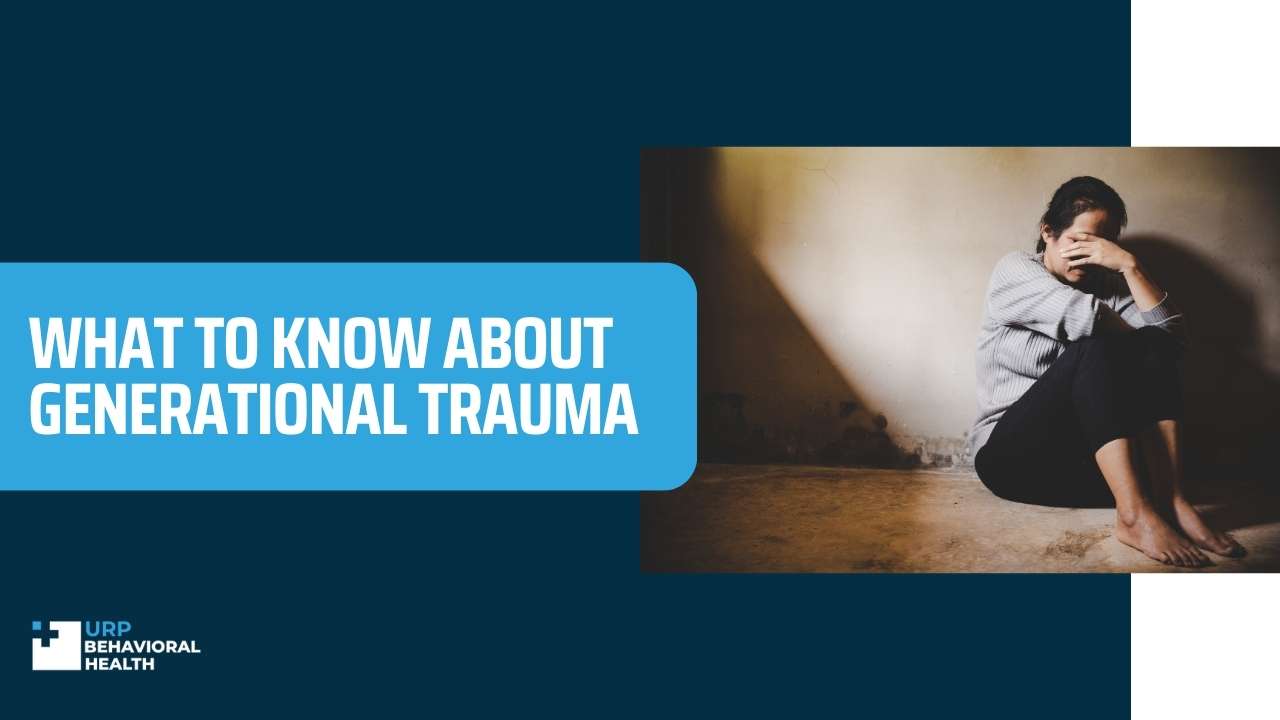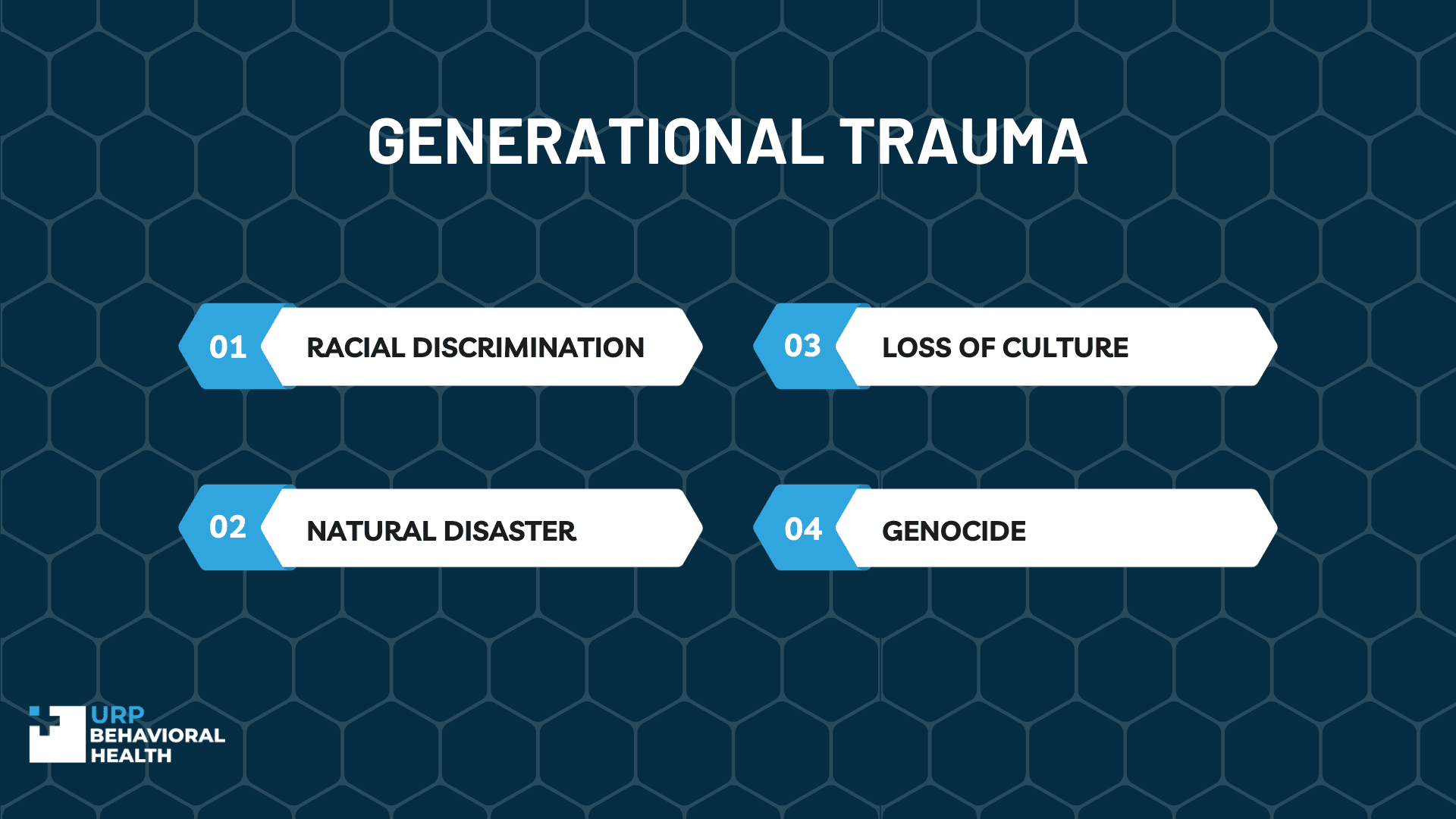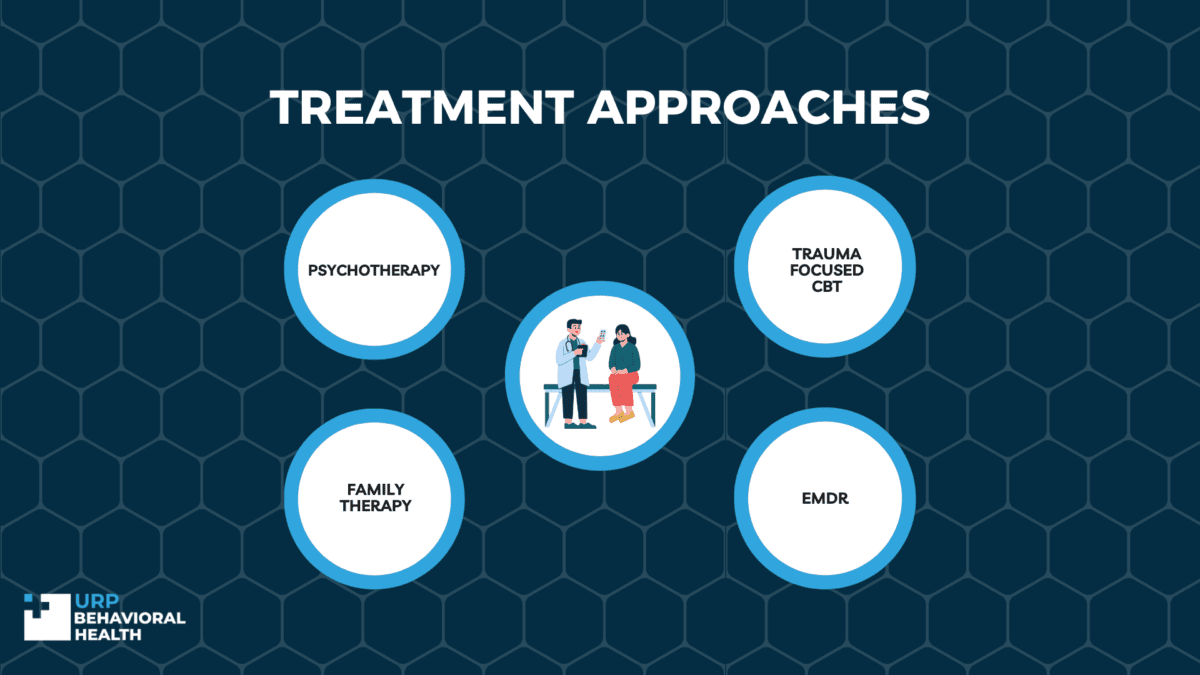What to Know About Generational Trauma

Statistics show that about 70 percent of US adults have gone through some type of traumatic event in their lives. That equals to 223.4 million people. And when this trauma goes unaddressed, it can pass down from one generation to the next, manifesting in families and broader communities. Generational trauma can occur because of social, biological, or psychological factors.
Similarly, traumatic events can cause changes in your DNA, leading to generational trauma. It’s something that affects many communities, but to heal from it, you need to understand it. So, let’s take a look at what generational trauma means, common examples, and possible treatment approaches.

What is Generational Trauma?
According to the APA, generational trauma is the transmission of psychological consequences of events, such as poverty or discrimination, from the generation experiencing the event to the following generations.
When a group of people experience a traumatic event that causes economic, familial, or cultural distress, the psychological and physiological effects of that event are passed down to subsequent generations in that group. Because of this, people belonging to that specific group experience similar psychological symptoms. One explanation for this transference is the epigenetic model, which states that your environment and behaviors can affect your genes.
Signs of generational trauma can include difficulty forming relationships, panic attacks, and using substances as a way to deal with emotional pain.

Examples of Generational Trauma
Racial Discrimination
The effects of slavery and systemic racism in the US go beyond an intergenerational cycle of poverty. Researchers have discovered that nutritional deficiencies and chronic stress faced by African Americans during slavery led to epigenetic changes. These changes contribute to poor mental and physical health outcomes among present-day African Americans.
Similarly, studies have also found that generational trauma has led to high risks of depression, anxiety, and medical conditions like high blood pressure among African Americans. This cycle continues because of structural mechanisms that lead to a disparity in access to economic opportunities and healthcare.
Loss of Culture
Indigenous communities from different parts of the world have faced traumatic events that led to historical losses. These communities lost their culture, language, land, and population. Today, trauma persists because of prejudice and discrimination against Indigenous people.
A 2019 study found that about 15 percent of respondents from Indigenous communities didn’t seek medical treatment services because of discrimination in healthcare settings. It’s why research points to a higher likelihood of poor physical and mental health outcomes among indigenous people.
Natural Disaster
People who survive natural disasters like tsunamis, tornados, or earthquakes may develop long-term mental health concerns like depression and anxiety. This is especially true for communities in locations that are vulnerable to numerous natural disasters and the effects of climate change. This distress can make it difficult to form meaningful relationships with others or bond with their children, the effects of which can be passed on to future generations.
Genocide
In one of the earliest studies on generational trauma, the research team detected high levels of distress among the children of Holocaust survivors. In a 2017 survey on the children of Holocaust survivors, the results showed that around 7 percent of participants had PTSD. Moreover, nearly 14 and 18 percent of participants reported depression and generalized anxiety disorder, respectively.
Further research shows that these effects are possibly linked to epigenetic changes. One study suggests that Holocaust survivors and their children faced a greater likelihood of experiencing changes in their FKBP5 gene, a stress gene that’s linked to PTSD, anxiety, and depression.
Our Generational Trauma Treatment Center
To receive a diagnosis related to generational trauma, you need to meet specific clinical criteria. A licensed psychiatrist or therapist will carefully assess your history and current experiences to determine whether your symptoms align with recognized guidelines in the Diagnostic and Statistical Manual of Mental Disorders, Fifth Edition (DSM-5).
- Advantages of Inpatient Treatment
- Controlled Environment
- 24/7 Supervision
- Regular Psychiatric & Medical Assessments
- Multidisciplinary Treatment Team
- Chef-Prepared Nutritious Meals
- Evidence-Based & Integrative Therapies
- Outdoor Picnic & Relaxation Areas
- Secure Outdoor Spaces for Recreation
- Contemporary Design with Safety Measures
- Exercise Equipment Available On-Site
Risk Factors of Generational Trauma
Although everyone is susceptible to generational trauma, certain risk factors can increase the likelihood of that happening.
- Discrimination, violence, and historical oppression against specific causes are some of the most well-documented causes of generational trauma.
- Conflict and persecution can force communities to leave their homeland. This cultural dislocation can contribute to feelings of isolation and loss.
- Intergenerational poverty and other difficult life circumstances can contribute to generational trauma. Such circumstances can make it difficult for communities to thrive financially or emotionally.

Treatment Approaches
Psychotherapy
Therapy is a highly effective way to process generational trauma. It gives you a safe and comfortable space to explore your thoughts regarding your childhood trauma. Over the course of your sessions, you develop coping skills like relaxation techniques to better manage your emotions. You’ll also work with your therapist to understand how the event affected your family over generations, allowing you to understand how it affected you personally.
Trauma Focused CBT
Often used to help children and adolescents cope with the effects of a traumatic experience, TF-CBT is an approach to psychotherapy. It involves teaching coping and relaxation skills to people who have experienced traumatic circumstances. This method uses cognitive restructuring techniques and exposure principles that apply to the traumatic event.
In cognitive restructuring, you work with your therapist to find dysfunctional thoughts such as self-blame, shame, and guilt and replace them with adaptive ways of thinking. This helps develop a positive self-image that encourages empowerment and resilience.
Family Therapy
Part of the healing process involves educating and informing your family members about the effects of generational trauma. Family therapy sessions provide you with an environment to discuss how your parents and grandparents were affected. This gives you an opportunity to acknowledge what happened and break away from the cycle.
EMDR
Through EMDR therapy, you and your family members can reprocess the traumatic event so that it no longer causes discomfort and anxiety. You can reprocess the story behind your generational trauma, allowing you to make the conscious choice of breaking free from destructive cycles. By reprocessing the event, you also become more resilient, resolve unresolved grief, and break away from unconscious patterns.
Let us guide you towards healing
We know that seeking treatment can be overwhelming, but our staff is here to make the process as smooth as possible. We’re available 24/7 to address any questions or concerns you may have.









